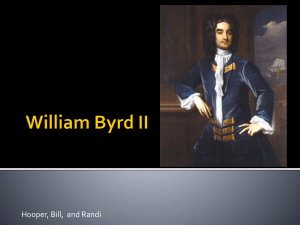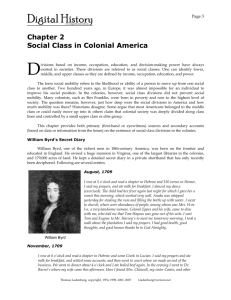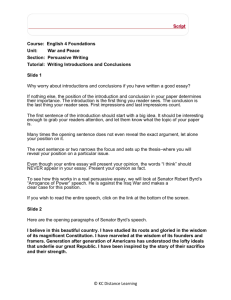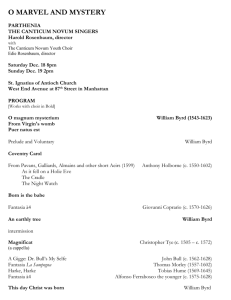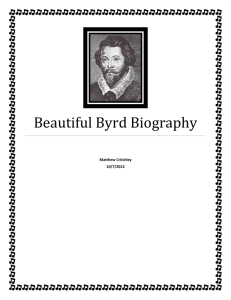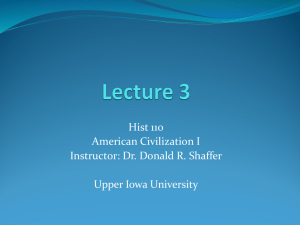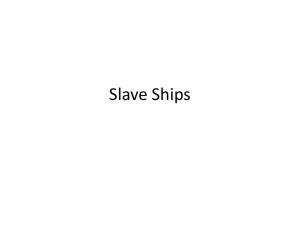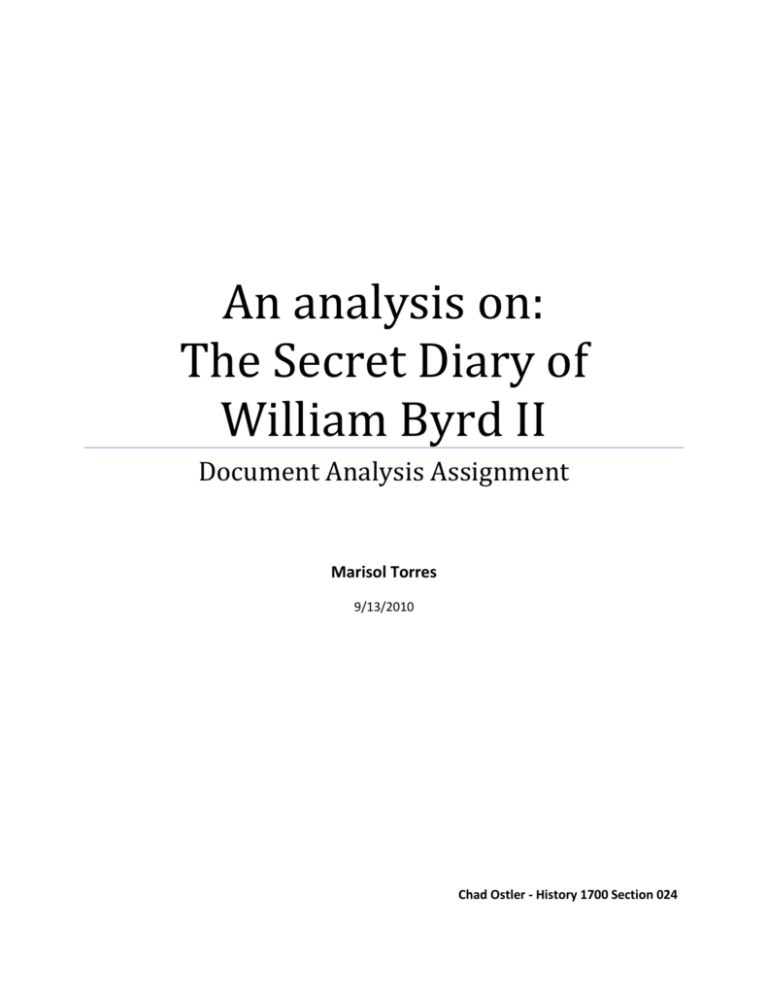
An analysis on:
The Secret Diary of
William Byrd II
Document Analysis Assignment
Marisol Torres
9/13/2010
Chad Ostler - History 1700 Section 024
William Byrd II belonged to the highest of Virginia society. He was a wealthy plantation
owner, keeping a diary of his daily activities. Through his excerpts we are able to comprehend
the happenings of his daily routine, which occur after indentured servitude was no longer the
primary form of labor in the United States. Between 1709-1711 he talks of his family, which
included his negro slaves, and his abusive treatment of them. He kept these journals as
accounts for personal use, rather than publishing them for public interpretation.
In the time period that William Byrd II lived, he belonged to the Virginia elite, although
this status meant nothing when he studied abroad with rich English society. In reading
selections of his diary, we can see that he had great expectations of being of noble worth.
Because of his great satiation to be part of the aristocratic English, he was a very religious man.
In practically every excerpt he wrote of God, reading the Bible or his religious dancing for God.
And, although he demonstrates his desires, he also wrote his diary in a secret code.
Encryption indicates that Byrd’s practices, although the norm for the southern regions
of the United States at the time, were an embarrassment, or a secret that he wished to keep.
He wished to keep his image of a sophisticated, well-educated gentleman from English society.
Because this occurred after Bacon’s Rebellion, Byrd, like many other plantation owners, wished
to separate himself from the lower yeoman, by distancing himself culturally and through
education. In his diary we also note that he consistently writes about reading novels or the
Bible.
Since indentured servants had proven not to be as profitable and accommodating as
fugitive slaves, Byrd owned slaves. In one of his passages he says that they are part of his
family. And, although William Byrd talked of family as you and I do, as a close knit group of
people sharing an emotional relation to each other and having the common goal to help each
other, Byrd does not view his slaves in this manner.
William Byrd II holds his slaves at the level that he would hold his pets. He expects them
to obey his command and stay at his side. Throughout his diary, he references a slave called
Eugene. I believe Eugene is a child as he mentions Eugene’s bedwetting to be the cause of
some of his whippings. He describes how he abusively has Eugene put the bit on (a bar of metal
attached to reins to control a horse), perhaps to silence his slave. Silence or not, it is still very
inhumane. On another occasion, he forces Eugene to drink a pint of urine. And still, on one
particular day he writes, “My Eugene ran away this morning for no reason.”
On another date he writes about another slave, L-s-n, being punished for beating his
wife, and yet he regards the whipping he gives Jenny for having sexual relations with her
husband not abusive. He distinctly uses the word beating as something bad that L-s-n has
done, and whipping as just. Because he views slaves as sub-human, he views their actions as
unchristian-like and animalistic.
On one account, Jenny retaliates, to be caught later on by Byrd’s “family,” his other
slaves. It was an unfortunate sentence to read, knowing that slaves accepted their undeniable
position in society, viewing slavery as part of everyday life.
Most offensive, reflecting on today’s norms and my own opinion, is that he spoke of
these routine events with such lightness, such insignificance where most days he wrote, within
the span of one paragraph, what he had read, what he had prayed, what he had eaten and who
he had whipped in that one day.
Today we would look down on slavery and Byrd’s conduct with his slaves. His actions
were horrendous but what we must take into account is the culture of that time. Byrd later
published a book plotting the boundaries between Virginia and North Carolina. His diary having
been specially encrypted was of greater significance, as it was his truth.

